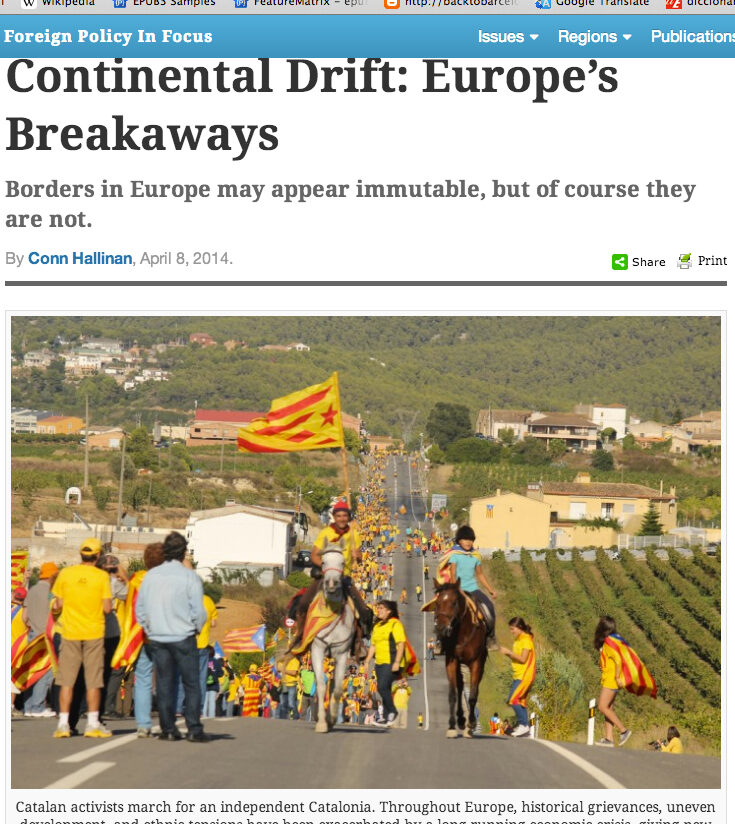10.04.2014 - 15:36
Conn Hallinan analyzes the situations in Catalonia and Belgium for Foreign Policy in Focus.
“Happy families are all alike: every unhappy family is unhappy in its own way.”—Leo Tolstoy, Anna Karenina
The opening to Tolstoy’s great novel of love and tragedy could be a metaphor for Europe today, where “unhappy families” of Catalans, Scots, Belgians, Ukrainians, and Italians contemplate divorcing the countries they are currently a part of. And in a case where reality mirrors fiction, they are each unhappy in their own way.
While the United States and its allies may rail against the recent referendum in Crimea that broke the peninsula free of Ukraine, Scots will consider a very similar one on September 18, and Catalans would very much like to do the same. So would residents of South Tyrol, and Flemish speakers in northern Belgium.
On the surface, many of these secession movements look like rich regions trying to free themselves from poor ones, but while there is some truth in that, it is overly simplistic. Wealthier Flemish speakers in northern Belgium would indeed like to separate from the distressed, French-speaking south, just as Tyroleans would like to free themselves of poverty-racked southern Italy. But in Scotland much of the fight is over preserving the social contract that conservative Labour and right-wing Tory governments have systematically dismantled. As for Catalonia—well, it’s complicated. <Read More>



